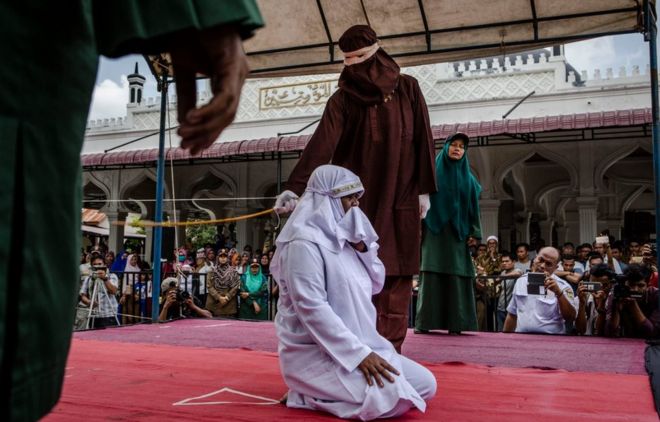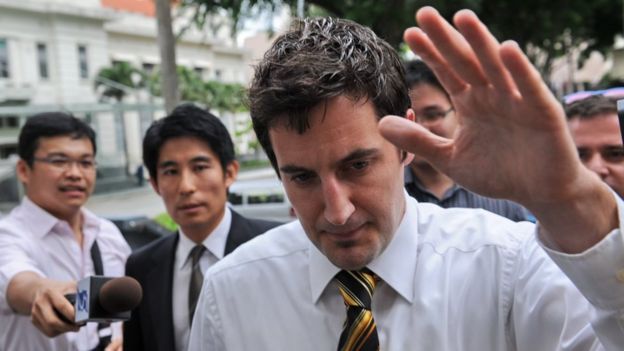
What is the Paris accord?
 REUTERS
REUTERSWhy doesn't Donald Trump like the agreement?
Will the US withdraw?
 AFP
AFPWelcome to access blog. We bring news from around the world, lifestyle, sports and celebrity gist. To get the latest from our daily update, follow us on twitter @nutexyorksy or subscribe with your email.
We can pick up the Covid-19 by touching surfaces contaminated with the new coronavirus, but it is only just becoming clear how long the virus can survive outside the human body.
As Covid-19 has spread, so has our fear of surfaces. There are now some familiar scenes in public places around the world – people trying to open doors with their elbows, commuters studiously surfing their way through train journeys to avoid grabbing a handle, office workers rubbing down their desks each morning.
In the areas worst hit by the new coronavirus, teams of workers in protective clothing have been dispatched to spray a fog of disinfectant in plazas, parks and public streets. Cleaning regimes in offices, hospitals, shops and restaurants have been increased. In some cities, well-meaning volunteers even venture out at night to scrub the keypads of cash machines.
Like many respiratory viruses, including flu, Covid-19 can be spread in tiny droplets released from the nose and mouth of an infected person as they cough. A single cough can produce up to 3,000 droplets. These particles can land on other people, clothing and surfaces around them, but some of the smaller particles can remain in the air. There is also some evidence that the virus is also shed for longer in faecal matter, so anyone not washing their hands thoroughly after visiting the toilet could contaminate anything they touch.
It is worth noting that, according to the Centers for Disease Control and Prevention, touching a surface or object with the virus and then touching one's own face "is not thought to be the main way the virus spreads". Even so, the CDC, the World Health Organization and others health authorities, have emphasised that both washing one's hands and cleaning and disinfecting frequently touched surfaces daily are key in preventing Covid-19's spread. So although we still don't know exactly how many cases are being caused directly by contaminated surfaces, experts advise exercising caution.
One aspect that has been unclear is exactly how long Sars-CoV-2, the name of the virus that causes the disease Covid-19, can survive outside the human body. Some studies on other coronaviruses, including Sars and Mers, found they can survive on metal, glass and plastic for as long as nine days, unless they are properly disinfected. Some can even hang around for up to 28 days in low temperatures.
Coronaviruses are well known to be particularly resilient in terms of where they can survive. And researchers are now beginning to understand more about how this affects the spread of the new coronavirus. (Read more about the global fight against Covid-19.)
The virus that causes Covid-19 is thought to survive for longer on hard surfaces than on materials such as cardboard
Neeltje van Doremalen, a virologist at the US National Institutes of Health (NIH), and her colleagues at the Rocky Mountain Laboratories in Hamilton, Montana, have done some of the first tests of how long Sars-CoV-2 can last for on different surfaces. Their study, which has been published in the New England Journal of Medicine, shows that the virus could survive in droplets for up to three hours after being coughed out into the air. Fine droplets between 1-5 micrometres in size – about 30 times smaller than the width of a human hair – can remain airborne for several hours in still air.
It means that the virus circulating in unfiltered air conditioning systems will only persist for a couple of hours at the most, especially as aerosol droplets tend to settle on surfaces faster in disturbed air.
But the NIH study found that the Sars-CoV-2 virus survives for longer on cardboard – up to 24 hours – and up to 2-3 days on plastic and stainless-steel surfaces. (Learn how to clean your mobile phone properly.)
The findings suggest the virus might last this long on door handles, plastic-coated or laminated worktops and other hard surfaces. The researchers did find, however, that copper surfaces tended to kill the virus in about four hours.
But there is a speedier option: research has shown that coronaviruses can be inactivated within a minute by disinfecting surfaces with 62-71% alcohol, or 0.5% hydrogen peroxide bleach or household bleach containing 0.1% sodium hypochlorite. Higher temperatures and humidity also tend to result in other coronaviruses dying quicker, although research has shown that a related coronavirus that causes Sars could be killed by temperatures above 56°C or 132°F (hotter than even a bath scalding enough to cause injury) at a rate of about 10,000 viral particles every 15 minutes.
By Richard Gray.
At least 22 children have drowned in Sudan when their boat sank in the Nile while they were on their way to school, according to official media.
A woman also died when the vessel went down around 750km north of the capital, Khartoum, with more than 40 children on board, the SUNA news agency reported on Wednesday.The accident occurred when the boat's engine broke down as result of heavy rains and winds in Beheir district in the Nile River state.
Civil defense forces were still searching the Nile river for the bodies of the victims.Villagers in the region rely on wooden boats to cross the Nile.
A witness told AFP news agency by telephone that the boat had been crossing the river against the current."All the families [in the area] are in mourning," added the witness, who did not want to be named.
Early on Wednesday, Sudanese authorities ordered the closure of schools across Khartoum amid heavy torrential rains and winds that have destroyed hundreds of homes in some provinces, including North Darfur and North Kordofan.Nearly 40 people have been killed due to heavy rains since last week, including 10 in Khartoum, according to local media. Sources : News agencies.
Police are responding to reports of a shooting at the Opry Mills Mall in Nashville, Tennessee
1:05 pm - 3 May 2018
The spot where the two bodies were found in glacierImage copyright Télévision Suisse Romande Image caption Bernhard Tschannen shows where the bodies were found in the ice
A shrinking glacier in Switzerland has revealed two frozen bodies believed to be of a couple who went missing 75 years ago, Swiss media report.
Marcelin and Francine Dumoulin disappeared after going to tend to their cows in the Alps in 1942.
The couple had seven children.
Their youngest daughter, 79, said the news brought her a "deep sense of calm" and she wanted to give them the funeral they deserved.
"We spent our whole lives looking for them," Marceline Udry-Dumoulin told Lausanne daily Le Matin.
Local police said the bodies were discovered last week on Tsanfleuron glacier, above the Les Diablerets resort, by a worker from ski-lift company, Glacier 3000.
Director Bernhard Tschannen said his employee found some backpacks, tin bowls and a glass bottle, as well as male and female shoes, and part of a body under the ice.
He said that it was likely the couple had fallen into a crevice and the way they were dressed implied that they could have been there for 70 or 80 years.
"The bodies were lying near each other. It was a man and a woman wearing clothing dating from the period of World War Two," he told Le Matin.
Ms Udry-Dumoulin said her mother, a teacher, never usually went on such walks with her husband, a shoemaker, because she spent much of her adult life pregnant and it was difficult terrain.
She said her and her siblings were placed with different families, and lost contact over the years.
She told Le Matin that she wanted to hold a long-awaited funeral, but would not wear black.
"I think that white would be more appropriate. It represents hope, which I never lost," she said.

 Image copyrightREUTERS
Image copyrightREUTERS Image copyrightAFP
Image copyrightAFP Image copyrightGETTY IMAGES
Image copyrightGETTY IMAGES Image copyrightAFP
Image copyrightAFP Image copyrightAFP
Image copyrightAFP